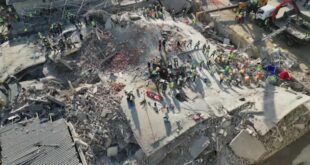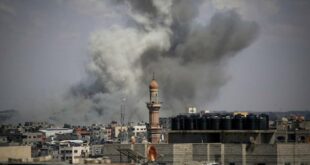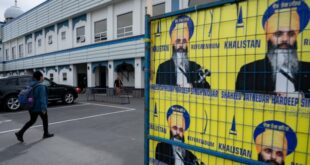Here's how experts say you can choose the candidate who will be best for the environment

There are lots of factors to consider when choosing who to vote for in an election. But if you're a voter who's concerned about climate change, how can you pick the candidate who will be most effective in addressing it?
It's a growing concern for more and more Canadian voters, according to Matt Hoffman, a political science professor at the University of Toronto-Scarborough, where he co-directs the Environmental Governance Lab.
"We're getting to a point in Canadian elections at all levels where you're not going to be taken seriously if you don't have a serious plan on climate change," he said.
Both Hoffman and Kathryn Harrison, a political science professor at the University of British Columbia, say that voting is one of the most effective forms of climate action. When evaluating a candidate's bid for your vote, Harrison and Hoffman suggest three main things to look for in the way they talk about the issue.

1. Urgency
The first is a sense of urgency about climate change and the need for immediate action.
"I think that if someone is serious about climate change, they're going to be telling voters that we need to take relatively significant action relatively quickly," Hoffman said.
"If people are only focused on [reaching net zero emissions by] 2050, they're not being that serious. We actually need to get started with some pretty significant action now."
"Things aren't going to stay the way they are now," Harrison said. "If we delay, they're going to keep getting worse."

2. Specifics
But beyond that general sense of urgency, Hoffman says it's important that candidates have concrete plans for specific actions they will take.
"I think the more specific that people are, the more serious they are," he said.
"Rather than just talking about how important climate change is, or promising some support for technological development down the line, there has to be some specifics."
3. Honesty about challenges
For Harrison, it's important that candidates be honest and realistic about the problem.
"There's a real tendency to exaggerate the [necessary] reductions, to pretend that some magic [solution] will materialize in the future," she said.
"[But] there is no miraculous policy that is going to solve this problem by imposing all the costs on someone else, or with no cost."
Climate scientists say avoiding the worst impacts of climate change means immediately reducing carbon emissions as much as possible. For Hoffman, that means political candidates who are serious about climate change need to be honest with voters about how that will change the relationship Canadians have with fossil fuels.
"That is going to be a big change for how the Canadian economy works and how our everyday lives are," he said — noting that this doesn't necessarily mean things will get worse, just that they have to change.
"We need to have a serious national-level conversation about how an economy that is based [in large part on] the oil and gas sector [is] going to change in a way that doesn't hurt the communities and workers that are dependent on that oil and gas sector."

Different levels, different responsibilities
When it comes to evaluating specific policies and platforms, a lot will depend on the type of election it is, because the three levels of Canadian governments — local, provincial/territorial and federal — have different areas of responsibility that often overlap with each other.
For Harrison and Hoffman, the main role that local governments have to play is in shaping the cities Canadians live in, and the ways they move around in them.
"How much space will there be for active transportation like walking and cycling?" said Harrison. "How much investment will there be in public transit? Are we going to continue building cities that set aside a very large fraction of the space for individual automobiles?"
Provinces and territories, meanwhile, have authority to regulate things like building codes and major industrial emitters, as well as make decisions about things like energy supply and resource extraction projects. Harrison notes that, while there is a federal carbon tax in place, many provinces have also taken that into their own hands (or attempted to fight it).
For Hoffman, one of the main roles the federal government has to play is managing the transition of workers in the oil and gas sector into other industries — something that has already been controversial. The federal government is also responsible for upholding Canada's international commitments, such as the Paris Agreement.

Tell people why you're voting
There's a lot to consider when making your decision, but Hoffman says that telling people about your decision is just as important as the decision itself.
"You have to tell people that you're voting and why you're voting, because to really start to make those societal transformations, we need to have individual choices be social and be visible," he said.
"Politicians need to know that people are voting on the basis of climate change. Parties need to know that. We need the people to be having these conversations in their living rooms, across fences, in their apartment lobbies."
*****
Credit belongs to : www.cbc.ca
 MaharlikaNews | Canada Leading Online Filipino Newspaper Portal The No. 1 most engaged information website for Filipino – Canadian in Canada. MaharlikaNews.com received almost a quarter a million visitors in 2020.
MaharlikaNews | Canada Leading Online Filipino Newspaper Portal The No. 1 most engaged information website for Filipino – Canadian in Canada. MaharlikaNews.com received almost a quarter a million visitors in 2020.







